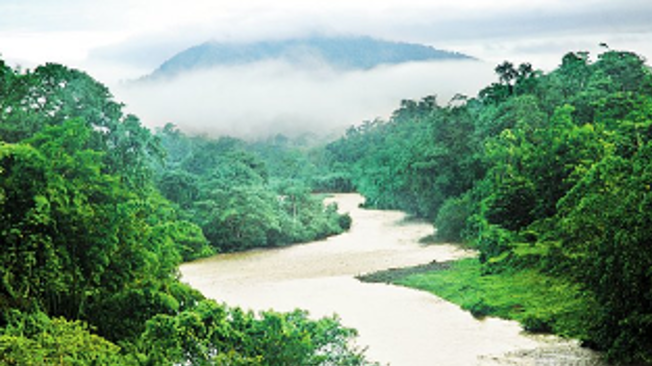Protecting the Five Great Mesoamerican Forests, Indigenous Rights, and our Global Climate by Addressing the Drivers of Deforestation
Five Forests is an international alliance working to protect the five majestic Mesoamerican forests – the Selva Maya (Mexico/Guatemala), Moskitia (Honduras/Nicaragua), Indio-Maiz/Tortuguero (Nicaragua/Costa Rica), La Amistad (Costa Rica), Darien (Panama). Combined these forests are the size of Costa Rica and second in size and importance in the Americas only to the Amazon.
Five Forests seeks to bring the importance of the ecological systems and the indigenous people who tend them to the public’s attention to protect these forests indefinitely.
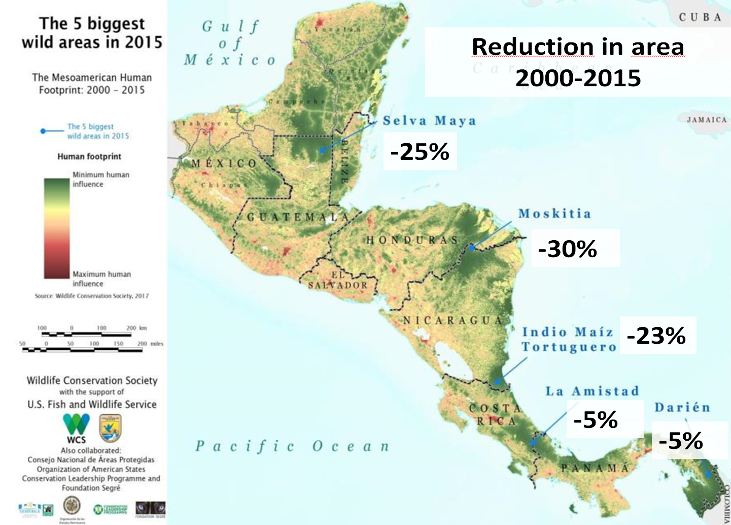
In the Americas, there are three major forest regions – the Amazon, the forests of Mesoamerica, and the northern temperate forests. While the Amazon jungle has become a household name, the Five Forests of Mesoamerica are of equal climate and biological importance. At the current rate of destruction, the Five Forests will be gone in less than two decades.
Trees vs. Cows
Central America is the epicenter of the battle between cattle ranching and trees. The bio-cultural wreckage due to cattle ranching in Central America is profound. Dr. Jeremy Radachowsky of Global Wildlife Society and Chris Jordan from the Wildlife Conservation Society conducted a comprehensive study entitled, “Human Footprint and Cow’s Hoofprint Analysis”. Dr. Radachowsky says, “Illegal cattle ranching is responsible for more than 90% of recent deforestation in the region’s remaining wildlife strongholds and indigenous territories. In the last 15 years, three of Central America’s five largest forests have been reduced in size by up to 30%. Between 2000 and 2015, the Moskitia Forest of Honduras and Nicaragua was reduced by 30% and the Maya Forest of Guatemala, Mexico and Belize was reduced by 25%.” [3]Read this article in Mongabay to learn more on how the global demand for cheap beef is a chief factor driving deforestation and displacement in the region. 90% of the forest destruction, especially within protected indigenous forests, has resulted from powerful elites, corrupt state leaders, and narco-ranchers using their influence to commandeer state and traditional indigenous land for cattle ranching. Central American nations export millions of head of cattle into the US each year. In fact, Nicaragua is the fifth largest beef provider to the USA in the world. Much of this forest-destroying ranching is currently legal under national laws. At the same time, the US produces [4] almost equal amounts of beef as it imports [5] globally. Thus, there is room to question the need for the US to import beef that is destroying tropical forests.
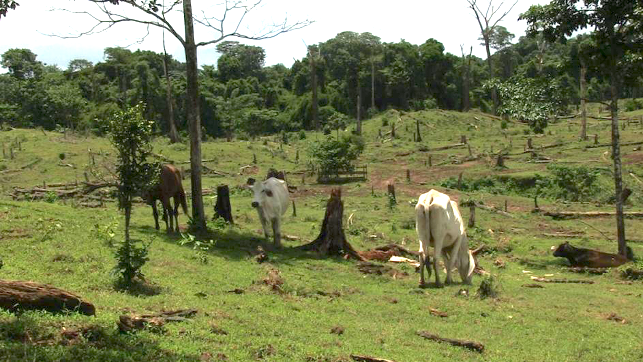
Moreover, a second shadow cattle economy permeates legal Mesoamerican cattle markets. In numbers estimated to rival legal imports, illicit cattle from Guatemala, Honduras, and Nicaragua are smuggled as contraband to Mexico and the US. Profits derived from ranching fuel narco-organizations and repressive regimes across Central America. Watch this PBS Newshour video that clearly lays out the unethical issues with the beef supply market from Nigaragua to the US.
Dr. Radachowsky reports,
“The overall impact of the cattle ranching industry in Central America is devastating. The destruction of forests threatens regional security and prosperity, with direct impacts on local populations, including indigenous and Afro-descendant peoples, local and national economies, water sources, human health, and biodiversity, as well as landscape species of great cultural significance such as the jaguar, tapir, Harpy eagle, and scarlet macaw, among many others. For example, white-lipped peccaries, a bellwether species, have had their range reduced by 87%. Furthermore, Central America is one of the most vulnerable regions to the impacts of climate change, and forest destruction exacerbates extreme droughts, forest fires, and landslides, while devastating the soils of lowland rainforests and threatening long-term food security.” [6]
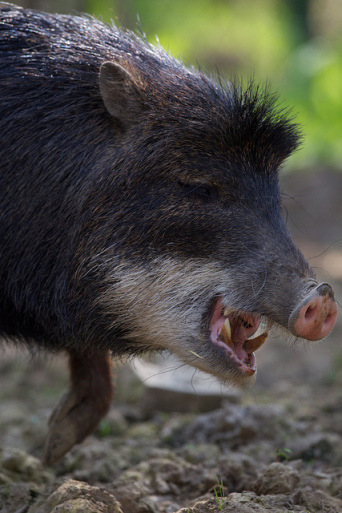
In addition to forest impacts, live cattle infected with brucellosis and tuberculosis exported from Central America present significant threats to the Mexican and US cattle, sheep, goat, pig, and chicken industries. These diseases can also pass to wild animals such as elk, deer, and buffalo, as well as pets. Brucellosis and tuberculosis are zoonotic diseases like Covid-19, meaning they can be transmitted from animals to humans.
The plight of indigenous people in the forest areas of Central America are even more greatly impacted. Dr. Radachowsky says,
“Since about half of the forested area in Mesoamerica is managed by indigenous peoples or forest communities, they are key allies in conservation and sustainable management of natural resources. However, they are also subject to the violence and insecurity caused by organized crime, as well as to State-supported illegal colonization of the forests and natural resources upon which their livelihoods depend. Removing cattle and protecting forests can simultaneously address the issues of illegal settlers and criminals exploiting indigenous territories, while increasing community food security and improving the safekeeping of collective property and the preservation of ancestral culture.” [7]
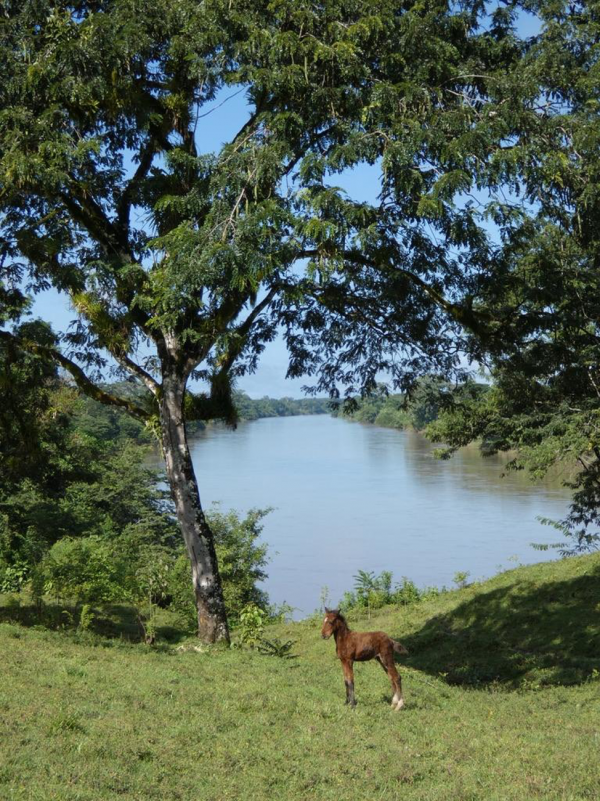
The Need for System-Wide Change
Five Forests changes systems. “It always seems impossible until it’s done.” Nelson Mandela, 2001 While there are ongoing grassroots and international efforts to advance indigenous rights, protect biodiversity, and ensure food safety in Mesoamerica, there is no system-wide effort to address the drivers of deforestation in Mesoamerica; no integrated, supply chain approach that connects the causes and effects to push for region-wide structural change in support of forests and indigenous forest peoples. The existential threat of climate chaos and the near and permanent loss of rich, tropical biodiversity and their native stewards requires that we take a coordinated systems approach to intervene in the mechanisms of habitat and cultural destruction. Five Forests brings together the vision and values of local indigenous communities with the power and resources of international civil society. Together, Five Forests is mapping the Mesoamerican cattle supply chain to identify the entities and processes that propel deforestation and injustice. We look for levers to energize fundamental system transformation. This work holds governments and corporations accountable all along the forest-to-beef supply chain. The goal is to secure a more sustainable and just trade system that preserves the five Meso-American forests, uplifts the rights and governance of indigenous inhabitants, ensures healthy, forest-safe beef for consumers, and protects the global climate.
[3]https://www.sciencedaily.com/releases/2017/07/170726091543.htm
[4]https://beef2live.com/story-beef-production-year-0-107550
[5]https://www.farmtalknewspaper.com/news/cattle-and-beef-trade-summary-part/article_4a577448-4a58-11e9-b287-e3afa1e88414.html
[6] Jordan and Radachowsky. More trees, fewer cows.
[7] Ibid
An International Collaboration
Five Forests Alliance is an international movement working to protect the five majestic Mesoamerican forests: the Selva Maya (Mexico/Guatemala), Moskitia (Honduras/Nicaragua), Indio-Maiz/Tortuguero (Nica/Costa Rica), La Amistad (Costa Rica), Darien (Panama). Combined these forests are the size of Costa Rica and second in size and importance in the Americas only to the Amazon. Collaborators include Global Wilderness Conservation, Wildlife Conservation Society, Comisión Centroamericana de Ambiente y Desarrollo, Alianza MesoAmerica de Pueblos y Bosques, the Occidental Arts and Ecology Center, and more. The work of the Five Forests Alliance is organized by cross-cutting issues and geographically by forest. ISSUES:
- Drivers of Deforestation: Address drivers of deforestation by tackling policies that make destructive cattle ranching profitable
- Strong Governance: Improve governance including strengthening law enforcement to remove cattle from protected areas
- Sustainable livelihoods: Support livelihoods by assisting indigenous governments and communities to strengthen their rights, access, and land tenure
- Reforestation: Reforest and restore areas degraded by cattle ranching
GEOGRAPHIC AREAS:
- Selva Maya (Mexico/Guatemala)
- Moskitia (Honduras/Nicaragua)
- Indio-Maiz/Tortuguero (Nicaragua/Costa Rica)
- La Amistad (Costa Rica)
- Darien (Panama)
Learn More
The Occidental Arts & Ecology Center is a movement strategy center based in Northern California. For more than twenty-five years, we have facilitated trans-local networks working at the vanguard of justice and ecological sustainability. Please contact Kendall Dunnigan, Director of Resilient Communities, at for more information on OAEC’s role in the Five Forest Alliance.
